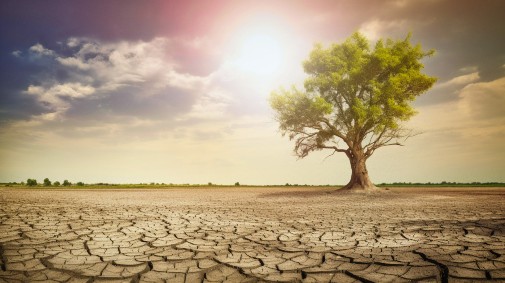University of York Joins Prestigious Science Institutes in Launching £150 Million Venture Fund
Gaia Sciences Innovation will harness the expertise of 12 leading research institutions – including the University of York – to invest in start-up, spin-out and scale-up businesses that can help tackle biodiversity loss and climate change.
Scientific expertise
These companies will then benefit from ongoing access to leading-edge scientific expertise in areas such as plant, fungal and animal sciences, ecology and hydrology, soil and microbiomes, and engineering biology.
The partnership, based in York, Norwich and London, brings together leading British institutions that are home to more than 4,000 scientists, researchers and conservationists, including the University of York, Royal Botanic Gardens Kew, Zoological Society London, UK Centre for Ecology & Hydrology, and the Norwich Research Park innovation cluster that incorporates the UKRI Biotechnology and Biological Sciences Research Council, Earlham Institute, John Innes Centre, Norfolk and Norwich University Hospitals NHS Foundation Trust, Quadram Institute, The Sainsbury Laboratory, and the University of East Anglia.
Evidence-led
The arrangement will see partner organisations benefit from new spin-outs through profit share (through co-ownership) and licence fees which allows organisations to fund future research and further build their organisational capacity. The spin-out companies will also provide a virtuous loop of valuable data from operating environments for scientists to refine and improve intellectual property.
Divya Seshamani, Managing Partner at Greensphere Capital, said: “In the face of the global climate and biodiversity crisis, we urgently need more investment into solutions based on the best available science. Mitigating these real risks requires evidence-led, science-based solutions, not anecdotes and spin.
“Britain is home to many of the world’s best bioscience researchers, but the commercial potential in their breakthroughs is too often being overlooked. We want to unlock a pipeline of exciting ventures that are based on brilliant ideas, that operate with scientific integrity, that are grounded in a contextual understanding of the complex natural systems and are alert to the risks of unforeseen consequences.”
Sustainable future
University of York Vice-Chancellor, Professor Charlie Jeffery, said: “We have some of the best researchers working on solutions to many of society’s most challenging environmental issues. This vital collaboration highlights the University’s commitment to creating a fairer and more sustainable future for all by harnessing knowledge from our discovery-led research to provide innovative solutions in the global fight against climate change and biodiversity loss.
“We look forward to working with Gaia Sciences Innovation on a range of exciting projects that have the potential to make a real difference to the world we live in.”
The fund will focus primarily on investments across three focus areas:
- Greening real assets: making agriculture and forestry more sustainable and enhancing or restoring land and water-based ecosystems, with applications such as natural pest control, green fertiliser and products that enhance soil health, afforestation and habitat restoration advisory, enhanced carbon dioxide sequestration, and improved watershed management.
- Green fintech: providing technology and expertise that can underpin and unlock green financial markets. This includes technologies to measure, monitor and verify biodiversity and climate impacts, including technologies for environmental DNA collection and sequencing, sensors for tracking water and soil health, computational genetics, and AI for assessing climate and nature-related risks.
- Human supply-chain resilience: investing in solutions that improve the resilience of human supply chains (from food to medicine) and ease pressures on ecosystems or adapt to changing conditions, for example through climate-resilient food crops, developing alternatives that displace drivers of deforestation such as meat, dairy and palm oil, and using plants for drug discovery or producing bioactive compounds.
Global GDP
In December 2022, international governments agreed the Kunming-Montreal global biodiversity framework with a goal of halting biodiversity loss by 2030, protecting 30% of the planet for nature.
According to the World Economic Forum, $44 trillion of global economic value is moderately or highly dependent on nature and its services, making up over half of global GDP.
Since 1970, there has been a 68% decline in animal life on Earth and it is predicted that by 2050 1 million species are on course for extinction.

